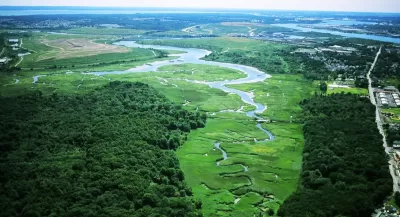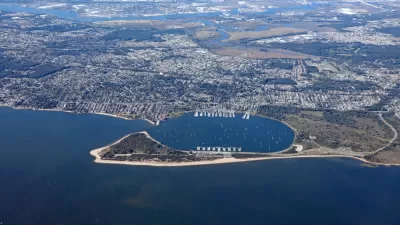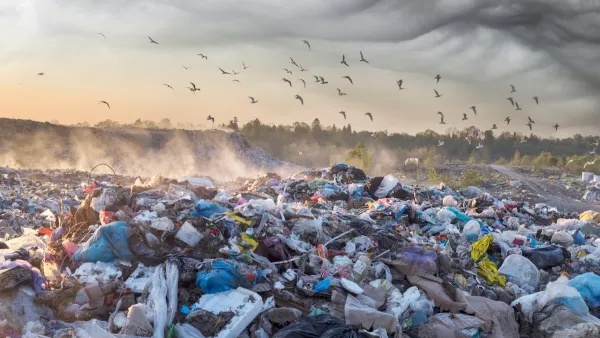Once the world’s largest dump, Freshkills Park now offers new city park space and powers local households with biofuel.

Last weekend marked a key moment in the transformation of “the world’s largest dump” into a public park with the opening of North Park in Staten Island’s Freshkills Park, writes Leslie Kaufman in Bloomberg Green.
The former landfill, which at its high point received 29,000 tons of trash daily, has been undergoing restoration since it was shut down by the city in 2001.
As Kaufman explains, the process of making a landfill site safe is complex. “Garbage compacts, creating shifting surface conditions. In North Park, the trash has been sculpted into four hills arranged around a tidal creek open for kayaking. There are roughly six layers of soil, sand and plastic lining on top of the garbage to prevent toxic leaks, including a vent layer, which moves any escaping landfill gas—a combination of carbon dioxide and methane—into pipes.”
Around the United States, over 500 landfills have been converted to energy projects that convert methane and other gases to fuel, and Freshkills is one of them. “The city sells 1.5 million cubic feet of this treated biogas to the local utility, which distributes it to Staten Island homes for cooking and heating.”
FULL STORY: How New York City Turned the World’s Biggest Garbage Dump Into a Park

Maui's Vacation Rental Debate Turns Ugly
Verbal attacks, misinformation campaigns and fistfights plague a high-stakes debate to convert thousands of vacation rentals into long-term housing.

Planetizen Federal Action Tracker
A weekly monitor of how Trump’s orders and actions are impacting planners and planning in America.

Chicago’s Ghost Rails
Just beneath the surface of the modern city lie the remnants of its expansive early 20th-century streetcar system.

Bend, Oregon Zoning Reforms Prioritize Small-Scale Housing
The city altered its zoning code to allow multi-family housing and eliminated parking mandates citywide.

Amtrak Cutting Jobs, Funding to High-Speed Rail
The agency plans to cut 10 percent of its workforce and has confirmed it will not fund new high-speed rail projects.

LA Denies Basic Services to Unhoused Residents
The city has repeatedly failed to respond to requests for trash pickup at encampment sites, and eliminated a program that provided mobile showers and toilets.
Urban Design for Planners 1: Software Tools
This six-course series explores essential urban design concepts using open source software and equips planners with the tools they need to participate fully in the urban design process.
Planning for Universal Design
Learn the tools for implementing Universal Design in planning regulations.
planning NEXT
Appalachian Highlands Housing Partners
Mpact (founded as Rail~Volution)
City of Camden Redevelopment Agency
City of Astoria
City of Portland
City of Laramie




























